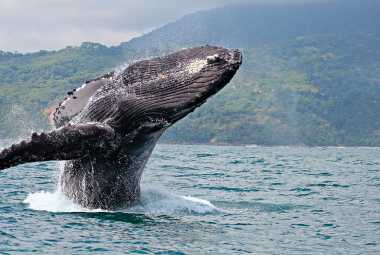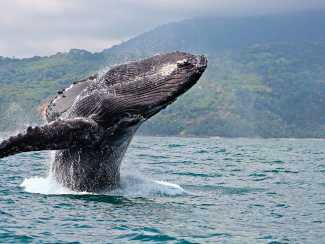Image by Getty
*Vacation Mode is a for-profit site. It contains paid banner advertisements that are generated and managed by a third-party network. This site also includes relevant affiliate links (both in the content and on the sidebar) all of which we do our best to clearly mark as such.
Quick Summary
-
Best Time to Visit Bali:
- The dry season (May to September) is ideal for outdoor activities with sunny days and lower humidity but expect peak tourist season crowds and higher prices.
- The wet season (October to April) offers a budget-friendly option with fewer crowds and lush landscapes, despite occasional downpours.
-
Bali Weather:
- Year-round temperatures range from the high 70s to low 90s Fahrenheit.
- The rainy season (November to March) features brief showers, while the dry season (April to October) has clear skies and sunny days.
-
Peak and Off-Peak Seasons:
- Peak season (June to August) is bustling with tourists, crowded beaches, and higher accommodation prices.
- Off-peak season (November to March) provides a quieter atmosphere with lower prices.
-
Must-See Places and Top Attractions:
- Iconic temples like Tanah Lot and Uluwatu, lush terraced rice fields of Tegallalang, and cultural experiences such as Kecak dance performances.
- Top tourist attractions include Tanah Lot Temple, Tegenungan Waterfall, Ubud Art Market, and Ubud Palace.
-
Best Beaches and Waterfalls:
- Beaches for every type of traveler, from family-friendly Nusa Dua to surfer's paradise Padang Padang and vibrant Seminyak.
- Notable waterfalls include Tegenungan, Gitgit, and Nungnung, each offering unique experiences and breathtaking beauty.
-
Activities and Experiences:
- A mix of water sports (surfing, diving), cultural immersions (temple visits, traditional dances), and adventure activities (hiking, biking).
- Engage in water sports like surfing at Uluwatu, explore underwater worlds, or immerse in cultural experiences through culinary tours and temple ceremonies.
-
Currency and Money Exchange:
- The Indonesian Rupiah (IDR) is the currency. Exchange money at authorized changers, banks, or ATMs. Be mindful of withdrawal fees and exchange rates.
-
Must-Try Foods:
- Enjoy Babi Guling, Nasi Campur, Pisang Goreng, and other traditional dishes to experience Bali's rich culinary heritage.
-
Accommodation Options:
- A variety of stays from budget guesthouses to luxurious villas, catering to different preferences and budgets. Booking in advance is recommended.
-
Health and Safety Precautions:
- Stay updated on routine vaccines, consider travel insurance, and consume bottled water. Be cautious with food and know local health services for a safe trip.
-
Frequently Asked Questions:
- Key insights on must-visit places, best travel times, local currency, traditional dishes, drinking water safety, and cultural etiquette guidelines.
Planning a trip to Bali and have questions about the best time to visit, the must-see places, activities to do, currency exchange, food, accommodation, and health and safety precautions?
In this article, we will answer the most commonly asked questions about Bali, including details on weather, peak and off-peak seasons, top tourist attractions, best beaches and waterfalls, water sports, cultural experiences, adventure activities, currency exchange, must-try foods, accommodation options, and health and safety precautions.
Let's explore all Bali has to offer!
What is the Best Time to Visit Bali?
Determining the best time to visit Bali is crucial for a memorable travel experience, considering the weather conditions, peak season crowds, and off-peak season advantages.
- When planning your trip to Bali, it's essential to take into account the island's weather patterns. The dry season, typically running from May to September, is favored for its sunny days and lower humidity levels, making it ideal for outdoor activities. This period also marks the peak tourist season, resulting in crowded beaches and higher prices.
- On the other hand, the wet season from October to April brings occasional downpours, but it's a great time for budget travelers to explore Bali without the crowds and enjoy lush greeneries.
What is the Weather Like in Bali?
The weather in Bali offers a delightful mix of tropical warmth, occasional rainfall, and refreshing sea breezes that characterize this popular travel destination.
The temperature in Bali typically ranges from the high 70s to low 90s Fahrenheit throughout the year, making it a perfect destination for sun-seekers. The rainy season, usually from November to March, brings frequent but brief showers that add to the lush greenery of the island. The dry season, from April to October, offers clear skies and sunny days, ideal for exploring Bali's stunning beaches and cultural landmarks.
Weather plays a significant role in shaping travel experiences in Bali, influencing the best times to visit iconic attractions such as the Uluwatu Temple or Mount Batur. Travelers can enjoy activities like surfing in the warm waters of Seminyak or trekking through the verdant rice terraces in Ubud, depending on the prevailing weather conditions.
What are the Peak and Off-Peak Seasons in Bali?
Bali experiences distinct peak and off-peak seasons, each offering a unique ambiance and catering to different preferences of travelers seeking varied experiences on the island.
- During the peak season in Bali, typically running from June to August, the island is bustling with tourists, both domestic and international, seeking the perfect tropical getaway. The beaches are lively, and popular attractions are often crowded. Accommodation options may be limited, and prices tend to be higher during this time.
- On the other hand, the off-peak season, from November to March, offers a quieter atmosphere with fewer crowds, making it ideal for those looking for a more serene vacation. Accommodation rates are generally lower, providing budget-conscious travelers with more affordable options.
What are the Must-See Places in Bali?
Exploring the must-see places in Bali unveils a tapestry of enchanting attractions, cultural landmarks, and natural wonders that define the essence of this captivating destination.
From the majestic temples like Tanah Lot and Uluwatu perched on cliffs overlooking the Indian Ocean to the lush terraced rice fields of Tegallalang, Bali offers a diverse array of experiences for travelers.
Carefully planning your itinerary to include iconic spots like the monkey-filled Ubud Monkey Forest and the serene waters of the Tirta Empul Temple can provide a glimpse into Bali's spiritual and natural beauty.
Don't miss the chance to witness a mesmerizing traditional Kecak dance performance or indulge in a rejuvenating Balinese massage at a luxury spa to truly immerse yourself in the island's rich culture.
What are the Top Tourist Attractions in Bali?
Bali boasts a collection of top tourist attractions that range from ancient temples and verdant rice terraces to vibrant markets and serene beaches, offering a medley of experiences for travelers.
- One of the must-visit spots in Bali is the magnificent Tanah Lot Temple, perched on a rocky outcrop surrounded by the sea. This iconic temple is not only a significant religious site but also boasts breathtaking sunset views.
- Adventure enthusiasts can explore the waterfalls and lush greenery at Tegenungan Waterfall or hike through the scenic Campuhan Ridge Walk for a nature retreat.
- For those interested in Balinese culture, the Ubud Art Market and Ubud Palace are perfect for immersing in local art and traditions.
What are the Best Beaches in Bali?
Bali's pristine coastline is adorned with some of the best beaches in the world, offering sun-kissed sands, crystal-clear waters, and a serene ambiance that beckons travelers seeking relaxation and seaside adventures.
Whether you're looking for family-friendly shores like Nusa Dua Beach with its calm waters perfect for swimming and water sports, or secluded coves like Padang Padang Beach, popular among surfers for its challenging waves, Bali has something for everyone.
For those craving a vibrant beach club scene, head to Seminyak Beach, known for its trendy beach clubs offering cocktails, music, and stunning sunset views. Whether you're a sunbather, a surfer, or a party-goer, Bali's diverse beaches cater to all types of travelers.
What are the Best Waterfalls in Bali?
Bali's lush landscapes harbor hidden gems in the form of breathtaking waterfalls that cascade into emerald pools, inviting adventure enthusiasts and nature lovers to explore these enchanting natural wonders.
- Among the standout waterfalls in Bali is Tegenungan Waterfall, known for its easy accessibility from Ubud and its striking beauty amid lush greenery.
- For those seeking a more adventurous trek, Gitgit Waterfall in the northern region beckons with its impressive height and picturesque surroundings.
- Meanwhile, Nungnung Waterfall offers a serene escape with a challenging hike through rice terraces and dense forests to reach its secluded oasis.
Each of these falls provides a unique experience, blending the thrill of exploration with the tranquility of nature for a truly unforgettable visit.
What are the Best Activities to do in Bali?
Embarking on the best activities in Bali promises a diverse spectrum of experiences, from thrilling water sports and cultural immersions to adrenaline-pumping adventures that capture the essence of this vibrant destination.
For those seeking a rush of excitement, Bali offers a plethora of water sports options, including surfing at famous spots like Uluwatu and diving in crystal-clear waters teeming with marine life.
On the other hand, travelers keen on immersing themselves in the local culture can visit ancient temples such as Uluwatu Temple or witness traditional Balinese dances and gamelan performances.
The adventurous souls can explore the lush green landscapes of Bali through hiking trails leading to majestic waterfalls or embark on thrilling bike rides through picturesque villages.
To make the most of these experiences, it's advisable to hire experienced guides or join reputable tour operators who can ensure safety and provide insights into the destinations.
What are the Best Water Sports in Bali?
Bali's azure waters beckon adventure enthusiasts with a plethora of exciting water sports, including world-class surfing breaks, vibrant coral reefs for diving, and tranquil snorkeling spots teeming with marine life.
Surfers flock to iconic spots like Uluwatu and Padang Padang for epic waves that challenge even the most seasoned riders. Travelers seeking underwater exploration can dive in sites like Tulamben, where the hauntingly beautiful USAT Liberty Shipwreck awaits, or the colorful reefs around Menjangan Island. For those looking to marvel at Bali's stunning underwater world without diving deep, snorkeling in Amed or Nusa Lembongan offers captivating experiences. Equipment rentals are readily available, catering to all skill levels, with safety measures in place to ensure a thrilling yet secure adventure.
What are the Best Cultural Experiences in Bali?
Immersing in the best cultural experiences in Bali unveils a tapestry of traditions, rituals, and artistic expressions that celebrate the island's rich heritage, inviting travelers to participate in authentic local customs and vibrant festivals.
From elaborate temple ceremonies that echo with ancient prayers to mesmerizing dance performances that narrate tales of gods and heroes, Bali offers a kaleidoscope of experiences that delve deep into the heart of Balinese culture.
Culinary tours, with their explosion of flavors and spices, showcase the intricate flavors that have been passed down through generations. By engaging in these traditional activities, visitors gain a profound insight into the beliefs and values that have shaped the island's identity over centuries.
What are the Best Adventure Activities in Bali?
Bali's rugged terrain and lush jungles offer a playground for adventurous souls, with a myriad of thrilling activities such as jungle trekking, mountain biking, and wildlife encounters that promise adrenaline-fueled escapades amidst nature's splendor.
Exploring Bali's diverse landscapes through guided tours can enhance the adventure experience, providing valuable insights into the region's flora and fauna. Safety measures such as wearing appropriate footwear and carrying essentials like water and first aid kits are crucial for a smooth journey. Renting quality equipment from reputable providers ensures a seamless biking or trekking adventure. Immerse yourself in Bali's natural beauty and embark on unforgettable wildlife expeditions, where encounters with majestic creatures like monkeys and exotic birds await amidst the island's enchanting wilderness.
What is the Currency in Bali and How to Exchange Money?
The currency in Bali is the Indonesian Rupiah (IDR), and understanding how to exchange money efficiently is essential for travelers to navigate the local economy and manage their budgets effectively.
When exchanging money in Bali, it's important to be aware of the denominations commonly used, which include banknotes of 1,000, 5,000, 10,000, 20,000, 50,000, and 100,000 IDR. While smaller vendors may prefer cash payments, many hotels, restaurants, and larger establishments also accept credit cards.
Travelers can exchange money at authorized money changers, banks, and hotels, but it's advisable to compare rates as fees and exchange rates can vary. Withdrawing cash from ATMs is a convenient option, but keep in mind that some ATMs may charge withdrawal fees, so it's recommended to check with your bank for any international transaction fees.
When budgeting for your Bali trip, allocate for expenses like accommodations, meals, transportation, activities, and souvenirs. By planning ahead and staying informed about currency exchange options, travelers can make the most of their visit to Bali without overspending.
What are the Must-Try Foods in Bali?
Indulging in the must-try foods of Bali is a gastronomic journey through a rich tapestry of flavors, spices, and culinary traditions that reflect the island's diverse and vibrant food culture.
As you traverse the winding streets of Bali, be sure to savor iconic dishes like Babi Guling, a succulent roasted suckling pig infused with a tantalizing blend of local spices. For those seeking a vegetarian delight, Nasi Campur offers a colorful plate adorned with steamed rice, vegetables, and sate skewers.
Dive into the bustling Ubud Market for an authentic street food experience, where you can sample Pisang Goreng (fried bananas) and Balinese-style satay. Don't miss out on the aromatic flavors of Lawar, a traditional minced meat salad flavored with coconut and spices, or the refreshing Es Campur, a delightful mix of shaved ice and tropical fruits.
Dive deeper into Balinese cuisine at local warungs and traditional markets to uncover hidden culinary gems that showcase the true essence of this enchanting island's food scene.
What are the Best Accommodation Options in Bali?
Selecting the best accommodation options in Bali is a crucial aspect of trip planning, offering a diverse range of stays from budget-friendly guesthouses and family-friendly resorts to luxurious villas and boutique hotels that cater to every traveler's preferences.
Whether you seek beachfront bungalows in Seminyak, eco-friendly lodges in Ubud's lush jungles, or cliffside retreats in Uluwatu with stunning ocean views, Bali has something for everyone. Families will delight in water parks and kids' clubs at many resorts, while adventure-seekers can opt for surf camps or jungle tree houses. For a touch of opulence, indulge in private infinity pools, personal butlers, and spa treatments at high-end villas.
To secure the best deals, consider booking in advance during the shoulder seasons or taking advantage of package deals that bundle flights and accommodation.
What are the Health and Safety Precautions for Traveling to Bali?
Prioritizing health and safety precautions while traveling to Bali is essential to ensure a smooth and enjoyable journey, taking into account factors such as personal well-being, local health considerations, and safety measures recommended for solo travelers, group tours, and families.
For a safe trip, ensure you are up to date on routine vaccines such as measles, mumps, rubella, and flu shots. Depending on your travel plans and medical history, consider additional vaccinations like Hepatitis A, typhoid, or rabies.
It's wise to have travel insurance that covers medical emergencies in Bali. Be cautious with food and water, opting for bottled water, well-cooked meals, and avoiding street food.
In case of health concerns, know how to connect with local health services and emergency contacts, and respect local customs for a memorable and secure experience.
Frequently Asked Questions
What are the must-visit places in Bali?
The top must-visit places in Bali include Ubud, Uluwatu, Kuta, Seminyak, and Canggu. Each of these locations offers a unique experience and showcases different aspects of Balinese culture and nature.
What is the best time to visit Bali?
The best time to visit Bali is during the dry season, which runs from April to October. This time of the year offers excellent weather for outdoor activities and sightseeing, with little to no rain.
What currency is used in Bali?
The local currency used in Bali is the Indonesian Rupiah (IDR). It is recommended to exchange your currency for IDR before arriving in Bali, as it may be challenging to find currency exchange services outside of major tourist areas.
What are some traditional dishes to try in Bali?
Balinese cuisine is known for its use of fresh ingredients and a blend of spices. Some must-try dishes include Nasi Goreng (fried rice), Babi Guling (roasted suckling pig), and Sate Lilit (fish or chicken skewers). Don't forget to also try the famous Balinese coffee.
Is it safe to drink tap water in Bali?
No, it is not safe to drink tap water in Bali. It is recommended to drink bottled water or use a water filtration system. Most hotels and restaurants will provide filtered water for guests.
What are some cultural etiquette guidelines to follow in Bali?
When visiting temples or other religious sites, it is important to dress modestly and cover your shoulders and legs. It is also considered respectful to remove your shoes before entering a Balinese home or temple. It is polite to greet locals with a smile and a friendly "hello" or "good day."


















